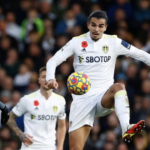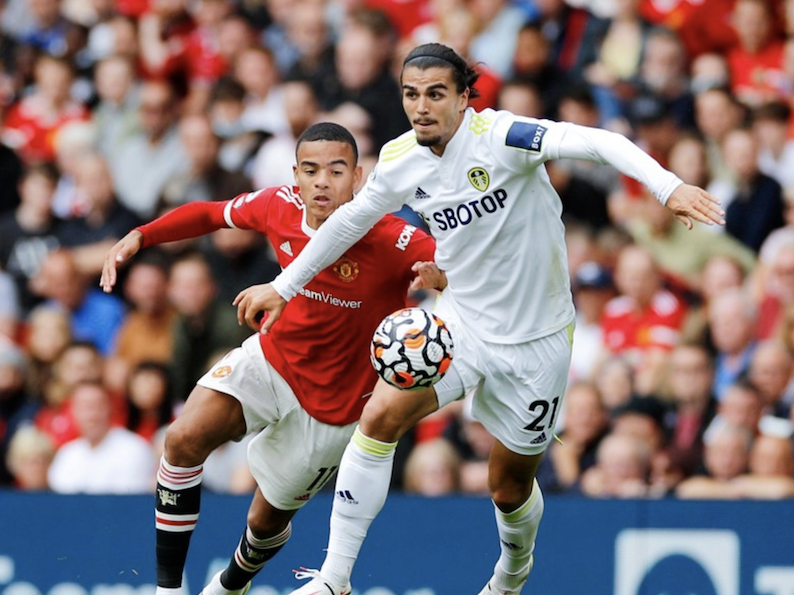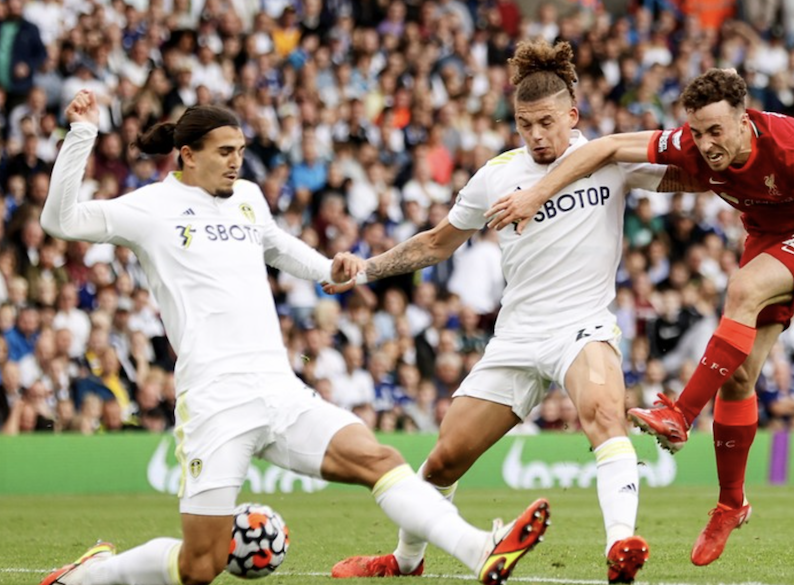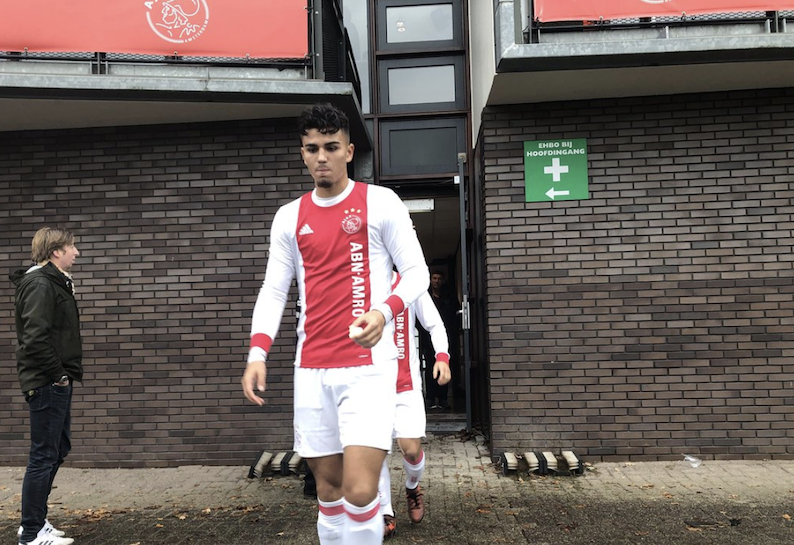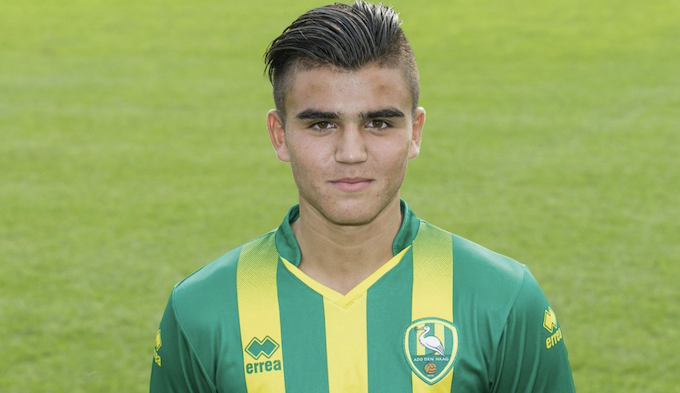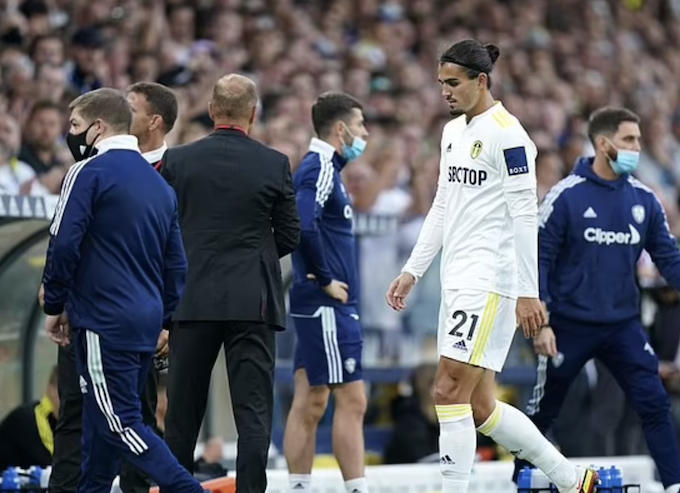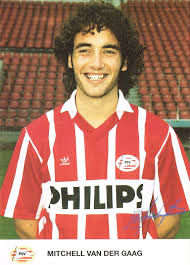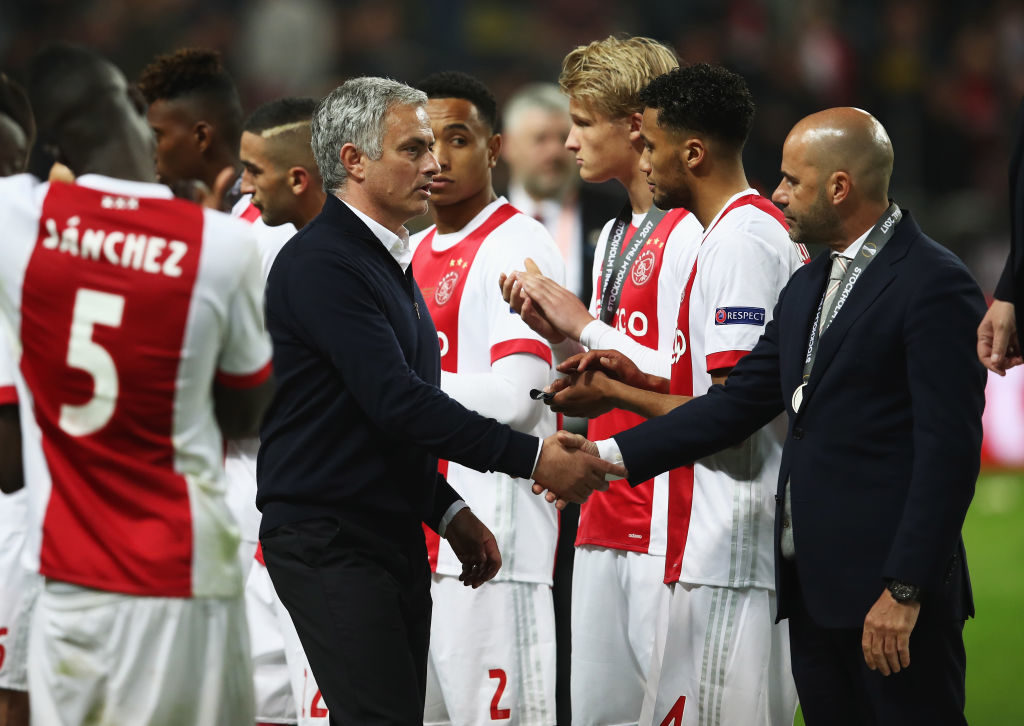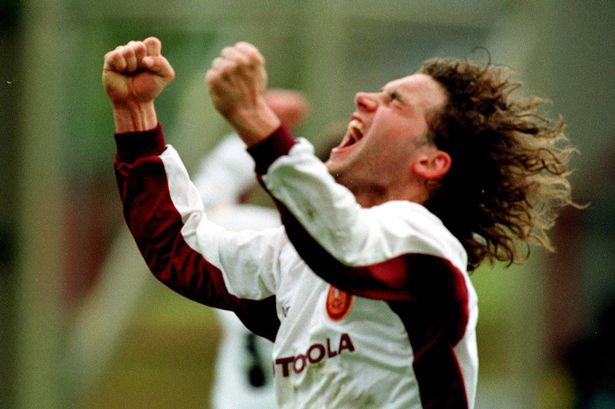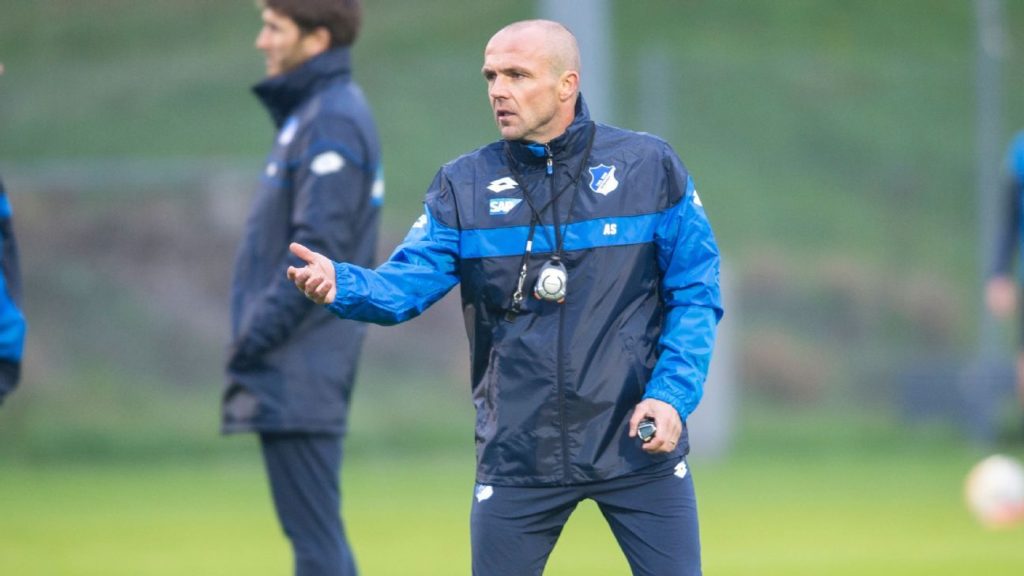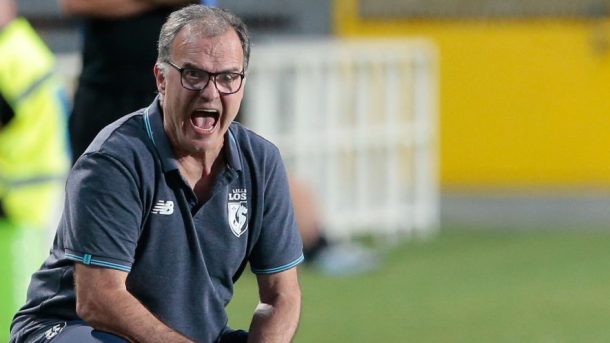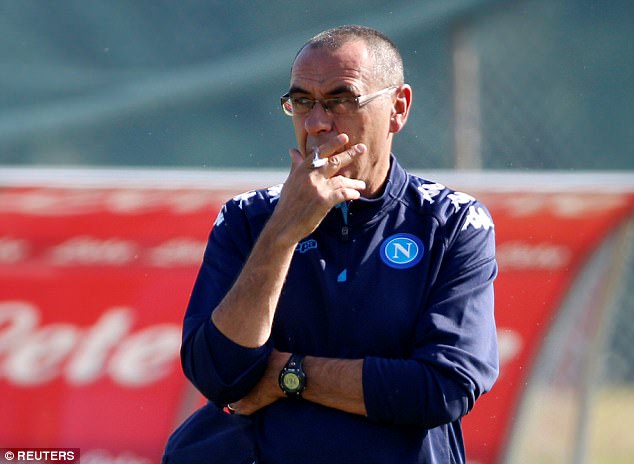He is beginning to be a big name in England. While in The Netherlands, he’s still merely a footnote. He’s Marcelo Bielsa’s favourite and is hoping to become Van Gaal’s as well. If only that call came.
The VI Pro pubished this excellent article on Struijk. Enjoy.
Elland Road is a paradise for football lovers. The 124 year old stadium oozes football. The steep stands, the wooden chairs, the names outside on the wall of Norman Hunter, Jacki Charlton and Gary Speed. There is the Don Revie statue of course, who managed the team of street fighters who dominated Englsh football some 50 years ago, with two titles, and an FA Cup.
Captain Billy Bremner is still considered their best player ever but today it’s the serious doctor’s face of Bielsa that looks down on the visitors here, on several big billboards. The maniacal Argentine coach steered Leeds back to the highest level in England after 16 years in the wilderness.
The sales guy in the fans shop: “The jerseys of Phillips and Raphinha are the most popular, but Struijk sits in third place, easily. He was part of the team that got promoted so he will be a hero here for life. He is our Virgil van Dijk!”
The comparison is made often. The Leeds press chef: “Did you see him against Norwich? Blimey! We knew he could defend but his passing is outrageous too. The fans, the manager, the media, everyone is impressed with him. Surely, he is in the National Squad by now?”
More about that later. But yes, Struijk does resemble. Van Dijk. They even look the same a bit and his game play too. Tall, elegant, sovereign, confident. Good in aerial duels. Excellent passer. And great vision. He might still be a tad soft, but once that goes, he will be world class.
There are more portraits in the stadium. Gary McAllister of course. Gordon Strachan. But no Jimmy Floyd Hasselbaink, for some reason. “One of our best strikers. And we see him often here, he visits us at least 8 times per year.” Eight other Dutchies played for Leeds United, and Robert Molenaar was probably the most popular. The concrete defender from Volendam earned the nickname The Terminator here. And now they again have a Dutch defender who is close to their hearts.
Pascal Struijk waits with a cup of coffee in one of the skyboxes. “See how wonderful this looks. Who wouldn’t want to play here? Most clubs don’t like coming here. The fans are so fanatical, it’s amazing.” Slowly he tells his story. “As a kid, we would watch Match of the Day. I adored English football and when we went across with an ADO Den Haag youth team once, we visited some of the big stadiums. We went to Old Trafford and Anfield and wow… I knew it then and thought: “One day I will play here!”. He played his first match at Old Trafford last season but as a bench warmer in an empty stadium. This season, he started with 80,000 people in the stands. Nervous? “Not really, I was very nervous in my first match v Liverpool, I think I had to go to the toilet 5 times before the game but that doesn’t bother me anymore. I know what I can and I concentrate on that. It feels like normal now. But when I speak to friends or family who are watching at home, I do realise how special it all is.”
“There are always stories of youngsters going across to England and failing, but for me it was the right decision. I don’t think Ajax rated me, which is ok… But I had to take control of my destiny.” He moved from ADO to Ajax when he was 16 years old but he was never really himself. “I didn’t know what my best position was but my coaches didn’t know either, hahaha. They even used me as a striker and it was not good for my confidence. “I was a bit shy, I guess. I was at home at ADO which is a warm club. Ajax is colder, more like a company. There were big name players, everyone was cocky and egotistical. I was too impressed with it all. You had to be cocky and confident, to survive. I didn’t have that. Matthijs de Ligt, he was such a strong personality, so confident. Justin Kluivert, the same. They all played for rep teams, I didn’t. I was too modest back then. But not anymore, hahaha.”
Lost at Ajax
“There are always players at Ajax who for some reason get the attention. You can feel that coaches are personally invested to get that player to the top. That connection with a coach, I missed that. I was one of these players that was overlooked, maybe like Virgil or Jaap Stam you know? Or Marten de Roon. I wasn’t great, so that didn’t help either. My hidden potential stayed hidden. I missed that sense of urgency to show myself. That came later I guess. I needed some help.”
His manager of Forza Sports Group brought him to a performance coach. “He asked me what my identity was. Was I a leader? Or a beast? And we worked towards building that identity. We did motivational stuff and mental stuff. I grew, I got more confident. It’s in little things. Like little rituals before a game. I also tell myself I am The Best. That helps too, hahahaha.”
Six months after Struijk signed for Leeds, Bielsa was announced. “My dad immediately bought his book El Loco. I had a bit of an idea what to expect. He is crazy indeed, but football crazy. Good crazy. He is obsessed with football and completely focused on making you the best version of yourself. As an example? We get personalised diets, which are balanced out to the calory.”
And of course hours or pre match tactical talks with all the information available about the opponent. “He can tell you which player will start to get fatigue at what moment of the game and he then starts to make silly fouls. Or particular patterns of play. Choices made by the goalie when kicking a ball out, etc etc.” Infamous are his training sessions of eleven v eleven, but without goals and now cornerkicks and no throw ins. When the ball is out, the coaches kick another ball in and the player need to keep on going. Standing still means a red card. Constant movement. Every 5 minutes there is a break. After 5 sessions like this, players are vomiting in the bushes. Bielsa studies the patterns and movements and checks all the data like a professor. When you survive this murder ball, you are ready to play the game. All players will tell you that a match is the easiest bit of being a Leeds player.
Junior at ADO Den Haag
Struijk can only confirm: “The practices are super intense. Bielsa sees everything. Every detail. He made me look differently at football. For instance: don’t follow the ball, follow the man. And he is most sharp when we turn around possession. We train very specifically on that aspect. I really became a way better defender under his leadership. Look at how easy some players allow their opponent to drift away. Or how some players jog back in position. That won’t happen with us.”
“We play different here. We play man v man, all the time. High pressure, suffocating the opponent and always tough in the duels. We won’t change that, no matter where we are in the table. We will go up I’m sure. It is all about the execution. In the start of the season, we were sloppy and we are missing some key lads, but we have the belief.”
Bielsa on Struijk: “He works really hard, mentally and physically. And he is very capable of playing in different roles. He’s important for us as he is also a very intelligent footballer.”
Struijk has been used as central defender, defensive mid and left back. “Bielsa does this on purpose to make me better, more complete. Now, as left back, I need to make a lot of runs. And I usually up against quick and agile players. I played in midfield too where it’s crowded and you need to act really quickly. I am growing in every aspect of the game. I never felt that my opponent had the better of me. The only thing, I saw the data of my aerial duels and even though I am a good header of the ball, the stats say I lose too many duels. So that is something to work on.”
Pascal lives with his fiancee in a small village outside of Leeds where he enjoys his off time walking his dogs in the park. The quiet does him good but some big city clubs are after him now, apparently. Napoli, AS Roma, Leicester City and Newcastle United are chasing his signature, according to rumour. The Leeds press manager leans in when the part Dutch part Indonesian defender responds: “I am happy here. But you never know. I do want to better myself constantly, of course.”
The Romantic Struijk
His fave spot in the team? Left Centre Back. His role model? “Virgil of course. His confidence, his charisma, some opponents simply get intimidated by that already. I watch his games and study him. He was a candidate for the Ballon D’Or as a defender! How good is that!? I want to grow to that level. It’s a high aim to go for but I want that. I want to become one of the world’s best. It’s the ambition at least.”
In September, Struijk was facing Van Dijk, which would be a black day in Pascal’s short career. He tacked opponent Elliott and the youngster of Liverpool ended up in hospital with a complicated ankle fracture. Struijk got red carded and a two-match ban. The whole football world was confused. Even Elliott himself said the red card was ridiculous. “He told me too, I went over to him and he immediately waved my apologies away. It was a clean block but his ankle got stuck under my trailing leg. It was an accident. Virgil asked me what was going on and I told him, that I didn’t know, I hadn’t even noticed at the time. Virgil sent me a supportive message after the game, which did me the world of good.” The young defender hopes to spend more time talking to Virgil, about football, about defending, about anything… And preferably, in Zeist! The home of Oranje.
Pascal was born in Belgium. Both his parents are from The Hague, but Struijk senior had a software company in Belgium and when he was 4 years old they moved back to The Hague. Struijk played 3 matches for Oranje U17 and hadn’t heard from Zeist since. Until Erwin van de Looi, Jong Oranje coach, called him for the Euros under 21. Robero Martinez, Belgium NT manager, called him as well. “I actually considered Belgium. He did have a good story for me and I decided to get my Belgium passport. Because of Corona i wasn’t able to travel to Belgium so that is now all on hold.”
Red carded vs Liverpool
“I don’t want to rule out the Belgium NT. I mean, their defence is getting older but the team itself is a top notch team. It’s not a disgrace to play for the Red Devils, by no means. But my heart goes out to Oranje of course. But I am not sure if Oranje has that with me. I never heard since that Van de Looi call. I would enjoy it if the KNVB would simply let me know they’re following me. That in itself would be grand. People tell me Van Gaal has a similar way of working as Bielsa so I hope to feel right at home with Oranje.”
Struijk’s grand parents are from Indonesia and they have also invited the central defender. “But no, Indonesia is not an option. You know what, if by next year no one shown interest, I could even be selected for the England team! I would be here for 5 years and considered a footballing Englishman, hahaha. That is very unlikely of course, but who knows. My ideal scenario: the Dutch NT of course. And at the coming World Cup, if possible.”
At the end of the interview, the press manager asks: “So what did you say earlier about El Loco?” Struijk: “I talked about the book. and that the gaffer is a bit crazy. But in a good way!”
The press manager: “Then it’s fine, hahaha.”

